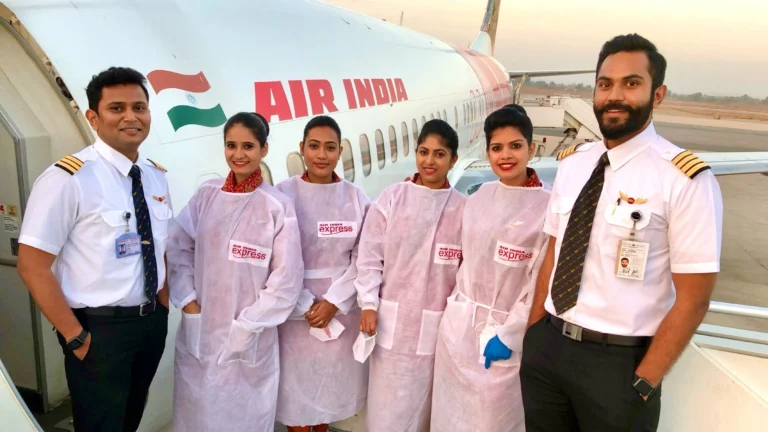Air India Express (IX) operates as an Indian low-cost carrier fully owned by Air India (AI), India’s national airline. Based in Gurgaon, Haryana, the airline runs over 2000 weekly flights connecting 45 destinations throughout India, the Middle East, and Southeast Asia. The carrier maintains operational bases across multiple Indian cities, including Kannur (CNN), Cochin (COK), Kozhikode (CCJ), Mangaluru (IXE), Thiruvananthapuram (TRV), and Tiruchirappalli (TRZ). However, its main operating base is Cochin Airport (COK).
Air India Express (IX) operates Boeing 737 aircraft connecting these 45 destinations. Currently, it has 104 aircraft in its service, including 36 Airbus A320 and 68 Boeing 737, as per Planespotters.net.
Candidates considering careers as pilots at Air India Express (IX) should research the company’s hiring requirements and salary structures to plan their aviation industry trajectory. Although Air India Express (IX) operates as a subsidiary of Air India (AI), the working conditions and compensation structures differ significantly between the two airlines.
The flag carrier Air India (AI) and its low-cost subsidiary Air India Express (IX) operate under distinct business models, resulting in notable differences in service standards, route networks, and workplace environments. While Air India (AI) provides full-service operations primarily between major transportation hubs, Air India Express (IX) functions as a budget carrier, focusing on connecting smaller markets and serving as a feeder network to Air India’s broader route system.
Pilots employed at Air India Express (IX) earn an average annual salary of ₹37.3 Lakhs, with compensation ranging from ₹22.5 Lakhs to ₹65 Lakhs per year, depending on experience level. This salary range applies to pilots with experience spanning from 1-8 years of service. These figures are derived from salary information recently provided by four Air India Express (IX) employees to AmbitionBox.

Air India Express Pilot Salary
At Air India Express (IX) in 2025, pilot compensation varies substantially depending on experience level and position. New First Officers (Co-Pilots) typically receive annual salaries of approximately ₹23 lakhs, while seasoned Captains can earn annual compensation ranging from ₹60 lakhs to ₹80 lakhs.
Fresher/Entry-Level Pilot Salary
Newly hired pilots at Air India Express (IX), serving in First Officer positions, generally earn between ₹18 lakh and ₹30 lakh yearly. This corresponds to monthly earnings of roughly ₹1.5 lakh to ₹2.5 lakh. Pilots in training positions often begin with more modest monthly earnings around ₹50,000, with opportunities for salary advancement as they acquire experience and move upward through the company’s pilot rank structure.
In addition to base pay, Air India Express (IX) offers pilots various supplementary compensations, including flying hour incentives, layover payments, and possible housing and travel allowances.
- Flying Hour Compensation: Pilots receive monthly allowances of ₹1,500 to ₹9,230 based on rank and hours flown.
- Other Allowances:
- Layover compensation: ₹2,200 paid for domestic overnight stays.
- Housing and travel perks: Benefits vary according to position and flight routes.
- Additional Benefits:
- Increasing compensation: Pilots earn higher salaries and better benefits as they gain experience.
- Advancement pathways: The airline provides internal promotion opportunities and access to leadership positions.
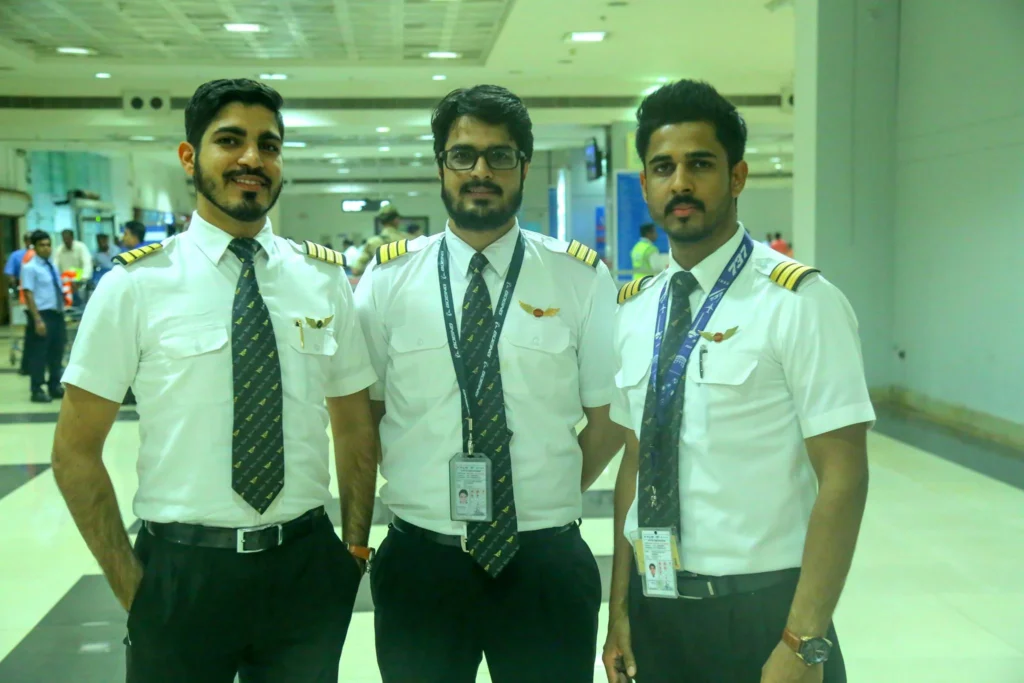
First Officer & Senior First Officer Pilot Salary
In 2025, Senior First Officers at Air India Express (IX) earn between ₹28.2 Lakhs and ₹41.4 Lakhs annually, with exact compensation varying based on experience and aircraft type. Compensation includes hourly flying allowances that vary by aircraft type and route, meaning pilots with more flight hours can increase their earnings.
- Flying Hour Compensation: Pilot earnings can range from ₹2,00,000 to ₹3,00,000 monthly according to Glassdoor data, with potential for higher compensation based on experience level and performance metrics.
- Overnight Stay Allowances: Pilots receive approximately ₹2,200 for domestic layovers, while international overnight stays earn substantially more, between ₹6,000 and ₹8,000.
- Comprehensive Package: Pilots receive additional perks, including full health coverage, retirement savings plans, and travel benefits offering reduced or complimentary standby flights for pilots and their families.
- Career Growth Paths: The airline provides clear advancement tracks that enable pilots to progress upward through the organisation, accessing improved compensation and enhanced benefits packages.

Captain Salary
At Air India Express (IX), Captains earn between ₹61.8 Lakhs and ₹68.3 Lakhs annually, according to employee-reported data collected by AmbitionBox. This compensation package includes both base salary and supplementary payments such as bonuses. Base salaries can reach approximately ₹90 lakhs yearly, with actual earnings varying according to the Captain’s experience level, aircraft type flown, and accumulated flight hours.
- Flight Allowances: Captains typically receive additional payments for each flight they operate.
- Accommodation Support: The airline may offer housing assistance or allowances, particularly for pilots stationed away from their home base.
- Performance-Based Bonuses: Additional compensation may be provided based on metrics such as safety records and flight hour efficiency.
- Travel Privileges: Pilots generally enjoy travel benefits, including discounted airfare for themselves and family members.
- Other Potential Benefits: Depending on contract details and airline policies, captains may also receive health insurance coverage, retirement plans, and opportunities for professional growth.

Air India Express Pilot Roles & Responsibilities
Air India Express (IX) pilots are tasked with operating advanced aircraft, either A320 or B737, safely while ensuring passenger security across diverse flight paths. They must follow safety protocols, keep licenses current, and maintain medical fitness.
Specific Roles and Responsibilities
- Operating Aircraft: Pilots must safely navigate and control aircraft, following established flight plans and air traffic control directives.
- Passenger Safety: They hold primary accountability for protecting passengers, crew members, and aircraft throughout flights.
- Regulatory Compliance: Pilots need to stay informed about current safety requirements, DGCA regulations, and company procedures.
- Licensing and Maintenance: They must keep all required certifications updated and adhere to rest guidelines to ensure medical fitness.
- Teamwork and Communication: Effective collaboration with flight attendants, engineers, and clear communication with air traffic control is essential.
- Professionalism and Leadership: Pilots are required to exhibit professional conduct, leadership qualities, and dedication to excellence.
Key Skills and Qualities
- Analytical and Problem-Solving Skills: The ability to evaluate situations quickly, analyse information, and make sound decisions under pressure.
- Strong Communication Skills: Clear communication is vital for coordination with crew members and air traffic controllers.
- Attention to Detail: Meticulous focus on details ensures aircraft safety and reliability.
- Technical Proficiency: Competence in operating aircraft systems and understanding their capabilities is required.
- Decision-Making Skills: Sound judgment across various flight conditions, including emergencies, is crucial.
- Adaptability: The capacity to adjust to changing flight circumstances and unexpected situations is necessary.
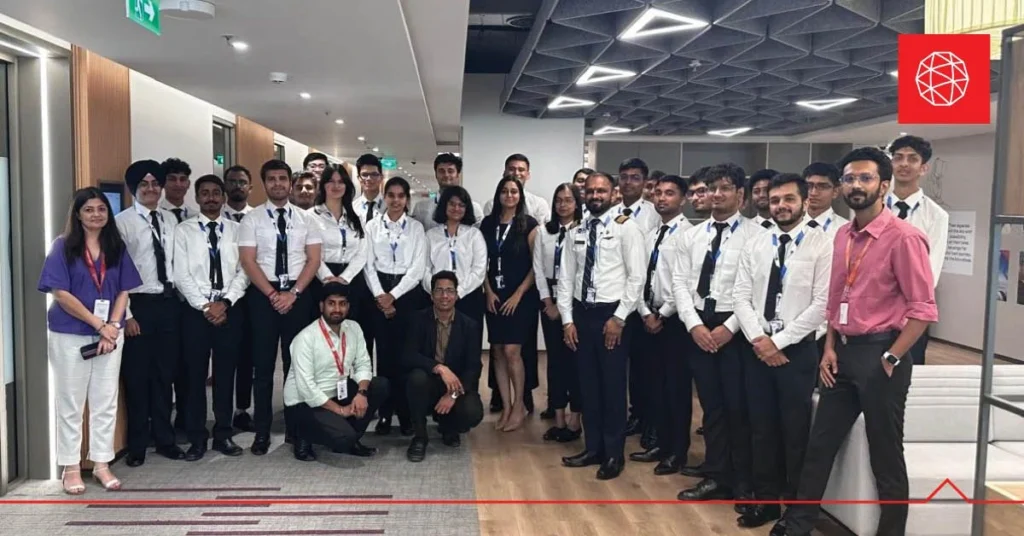
How to become a Pilot in Air India Express?
The journey involves securing a Commercial Pilot License (CPL), Instrument Rating (IR), and possibly a Multi-Engine Rating (MER) and/or type rating for specific aircraft operated by Air India Express (IX), such as the B737 NG. You must also clear DGCA examinations and get a Class 1 medical certificate, along with FRTOL.
Education and Training
- Academic Qualification: Completion of 10+2 education (including Physics & Mathematics*) from a recognised educational institution is required. (*The rule for the need of Physics and Mathematics might change soon)
- Pilot Training: Join a flight training program to acquire necessary licenses, including CPL, IR, and potentially MER.
- DGCA Examinations: Complete theory exams administered by the DGCA covering Air Regulations, Aviation Meteorology, and Aircraft Systems.
- Medical Certificate: Secure a Class I Medical Certificate from a DGCA-authorised medical examiner.
- Type Rating: Acquire specific certification for the aircraft you’ll be operating with Air India Express, such as the B737 NG.
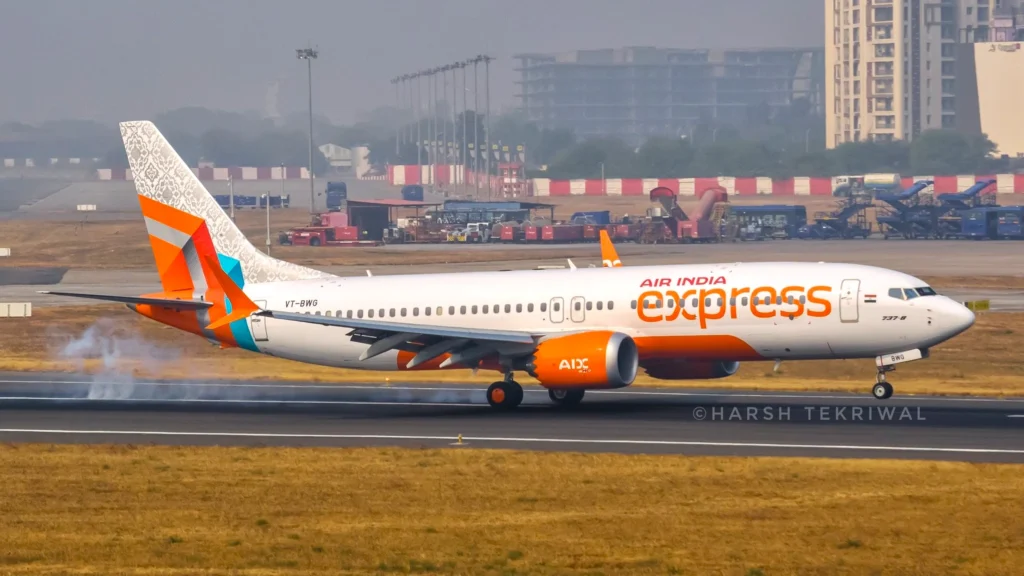
Licensing and Experience
- CPL: Acquire a Commercial Pilot License issued by the DGCA.
- IR: Obtain an Instrument Rating endorsement on your CPL.
- FRTO: Secure a Flight Radio Telephony Operator license from DGCA.
- RTR: Acquire a Radio Transmission license from the WPC, Ministry of Communication.
- Valid Passport: Possession of a valid Indian passport is necessary.
- Flight Experience: Gather required flight hours, which vary based on position and airline specifications.
Application and Selection Process
- Apply to Air India Express: Monitor the Air India Express website for career opportunities and application guidelines.
- Assessment: The selection procedure includes written examinations, ADAPT test, Group Discussion Rounds and Personal Interview.
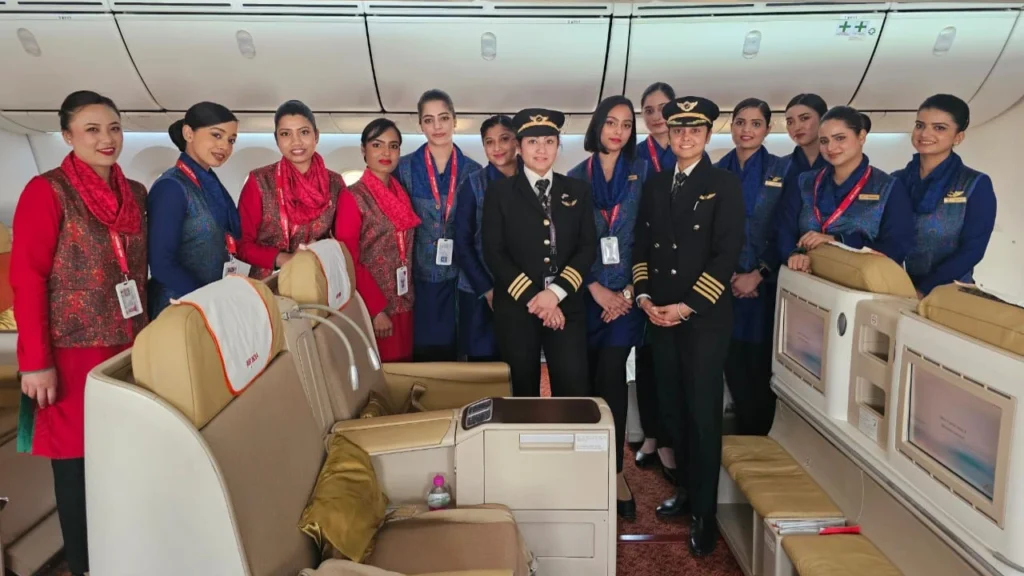
Cadet Pilot Program with Air India (Alternative Route)
Air India Cadet Pilot Programme provides a structured pathway for aspiring pilots, including training and financial options.
The program typically requires specific age qualifications and academic achievements, including a minimum of 60% in 10+2 with 60% in English, Mathematics, and Physics.
Bottom Line
Air India Express (IX), the low-cost wing of India’s national carrier, zips across 45 destinations with its fleet of 104 aircraft (36 Airbus A320S and 68 Boeing 737s). The airline offers pilots a rewarding career path with salaries ranging from ₹22.5 lakhs for fresh-faced First Officers to a sky-high ₹80 lakhs for experienced Captains.
Beyond the base pay, pilots enjoy perks like flying hour incentives, layover allowances, and those coveted travel benefits that make relatives suddenly remember how much they’ve missed you!
Want to join their ranks? You’ll need to navigate through some hoops first: secure a Commercial Pilot License, master instrument ratings, pass DGCA exams, and obtain a Class 1 medical certificate. The cockpit awaits those who complete 10+2 education (with Physics and Math), undergo flight training, and survive the selection process, including written tests and interviews.
Once aboard, you’ll be responsible for safely operating aircraft, ensuring passenger security, maintaining regulatory compliance, and demonstrating impeccable leadership—all while making split-second decisions at 35,000 feet that are slightly more consequential than choosing between chicken or pasta!
Stay tuned with us. Further, follow us on social media for the latest updates.
Join us on Telegram Group for the Latest Aviation Updates. Subsequently, follow us on Google News

